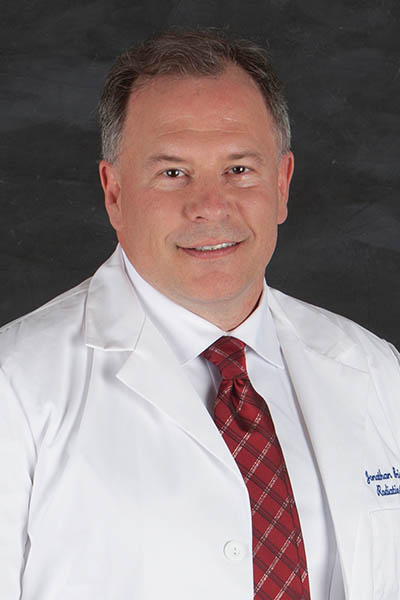
This year, an estimated 42,000 women will die from breast cancer in the U.S., a sobering number. But the good news is that deaths from the disease have gradually been declining.
That’s largely because of earlier detection and treatment made possible by continuing improvements in screening modalities and advances in breast cancer treatment options, including radiation therapy.
Typically administered after surgery or chemotherapy, radiation therapy is a painless, noninvasive way to treat breast cancer. Using high-energy X-rays to destroy cancer cells, it can significantly reduce breast cancer’s recurrence.
Who can benefit from radiation therapy?
For most patients undergoing breast-conserving surgery, radiation therapy is recommended. For patients undergoing mastectomy, radiation therapy may also be recommended depending on the cancer stage at diagnosis.
What to Expect During Treatment
The first step in radiation therapy is a consultation, when the radiation oncologist will:
- Review the patient’s medical records
- Determine (using national guidelines such as those developed by the National Comprehensive Cancer Network) if radiation therapy is an appropriate treatment option
- Identify any additional testing needed
- Discuss with the patient in language she can easily understand what treatment will entail
- Encourage her to ask any and every question she might have
This last item is essential to allaying the fears that almost universally accompany a cancer diagnosis.
Read More: Breast Cancer Myths
The consultation is followed by a CT simulation, in which the patient’s treatment is simulated by placing her in a comfortable supine position that can readily be reproduced at each treatment session.
The patient will then undergo a CT scan, which the radiation therapy team will use to develop a personalized radiation treatment plan that targets precisely the affected area. Small markings will be tattooed on the skin to further identify the treatment field.
Development of the plan usually takes about a week or less.
When the patient returns for the first treatment, she is placed in position using the original CT scan as guide. This ensures that radiation will be delivered to the exact location indicated on her treatment plan.
Read More: Sweet Success After Breast Cancer
The course of radiation therapy generally consists of five treatment sessions a week for three to six weeks. Especially with new, state-of-the-art equipment like the Varian Halcyon Linear Accelerator in use at New River Cancer Center, the sessions are relatively quick, about 10 to 15 minutes total time in the clinic. The radiation treatment itself lasts only a fraction of that time.
Will It Hurt?
Patients often wonder if the treatment will hurt.
"It is essentially like receiving an X-ray, so it is a noninvasive therapy," explains Dr. Jonathan Briggs, a board-certified radiation oncologist at the Beaufort Memorial Keyserling Cancer Center. "We try to ensure that patients are in a comfortable and reproducible position for the treatment course."
That said, there are side effects that can develop as the treatment course progresses. The most common is a skin reaction, called radiation dermatitis, which can be managed during the treatment course.
In addition, Dr. Briggs said, patients may experience fatigue. The fatigue will generally subside after the treatment course is completed.
Read More: Know What’s Normal for Your Breasts
The role of the radiation therapy team is to provide supportive care to the patient during the treatment course, and thereafter.
"Advances in radiation therapy—and in surgery and systemic therapy as well—have not only improved breast cancer survival rates, but also reduced the severity of side effects associated with treatment," says Dr. Briggs. "The latest technology allows us to more accurately target the breast while minimizing radiation exposure to normal tissue, thus reducing the side effects."
Be Proactive — Early Detection Improves Outcomes
Breast cancer treatments are most successful when the cancer is detected early and annual mammograms for women age 40 and older are the most effective tool for detection.
Beaufort Memorial has two Breast Health Centers that use advanced technologies for screening and diagnostic mammograms in a comfortable setting.
To schedule your mammography appointment with same-day results in Beaufort or Okatie, call 843-522-5015.
Updated: April 2025

